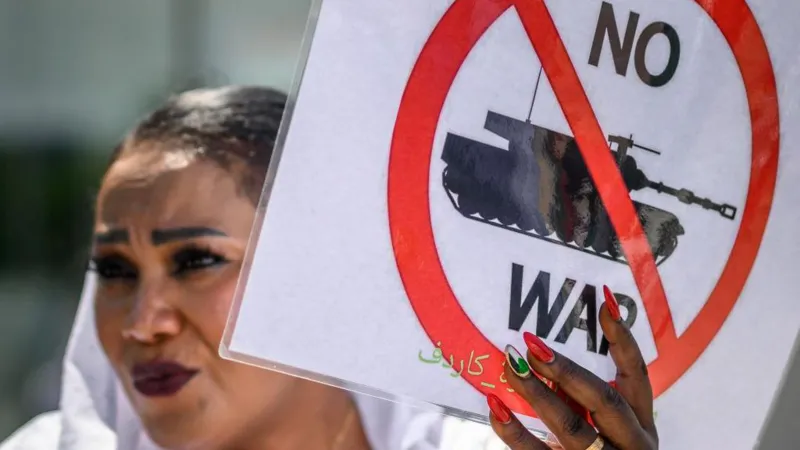In a tragic escalation in Sudan’s ongoing civil war, at least 21 people have been killed and more than 70 injured after shelling opened fire on a crowded market in the city of Sennar, according to the Sudan Doctors Network. The latest attack, described as a “massacre” of civilians, took place on Sunday and has further intensified the humanitarian crisis in the region.
The shelling was reportedly carried out by the paramilitary Rapid Support Forces (RSF), a group deeply involved in the conflict that has been going on in Sudan since April last year. The incident underlines the dire situation in Sudan, where the civil war between the army and the RSF has resulted in thousands of deaths and displaced more than 10 million people, making it one of the world’s most severe humanitarian crises.
A desperate humanitarian crisis
The conflict in Sudan has devastated communities and led to widespread suffering. Since the fighting began, both the RSF and the Sudanese army have been accused of committing atrocities against civilians. The RSF, which controls much of Khartoum, Kordofan and Darfur, has been particularly criticised for its brutal tactics, including the use of rape as a weapon of war and the targeting of ethnic communities in a campaign of ethnic cleansing.
Sennar’s position in a strategically important region has been a flashpoint in the conflict due to its proximity to Ethiopia and South Sudan and its rich agricultural resources. The RSF’s attempt to take control of Sennar has faced resistance from the Sudanese army, which still occupies the city despite the RSF’s control of much of the surrounding kingdom.
International response and challenges
The international community has struggled to respond effectively to the crisis. Most recently, the Sudanese army rejected a proposal from UN experts to deploy an international force to protect civilians. This rejection followed a series of failed peace talks brokered by Saudi Arabia and the US. Despite these efforts, the conflict shows no signs of abating.
The UN is investigating possible war crimes and crimes against humanity committed by both sides in the conflict. Their findings, which describe appalling conditions and abuses, have been denied by the Sudanese government. The government, led by army chief General Abdel Fattah al-Burhan, rejected the UN mission’s recommendations and criticized the Human Rights Council as a biased entity.
Human Rights Watch reports that despite the arms embargo, new weapons continue to flow into Sudan. The group has documented the use of advanced weapons, including armed drones and anti-tank missiles, obtained from various countries such as China, Iran, Russia, Serbia and the UAE.
The RSF and international mobility
The RSF, led by Mohammed Hamdan “Hemedti” Dagalo, emerged from the Janjaweed militia, which was notoriously involved in the Darfur genocide in 2003. The RSF has tried to raise its international profile and gain legitimacy by participating in peace talks in Switzerland, although these efforts did not receive the support of the Sudanese military.
The power struggle in Sudan is further complicated by international coalitions. The Sudanese military is backed by Egypt and Saudi Arabia, while the RSF is reportedly backed by the United Arab Emirates, although the UAE has denied any involvement.
